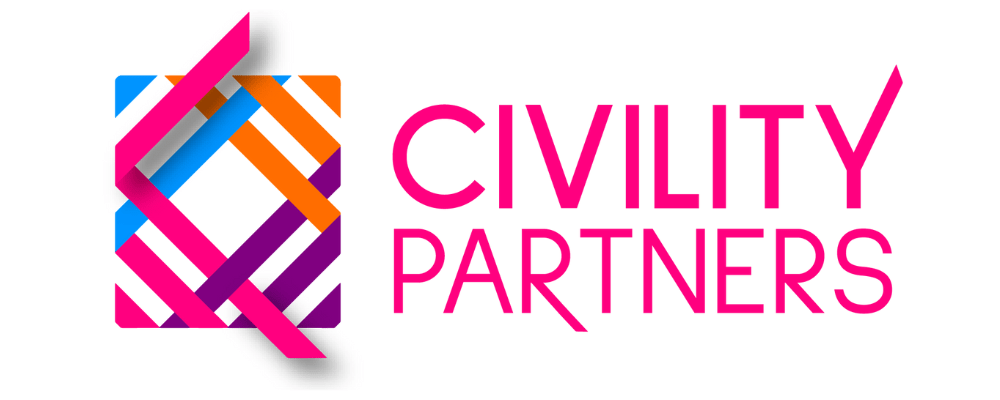According to SHRM, 66% of U.S. employees have experienced or witnessed incivility in their workplace. The most common forms include addressing others disrespectfully and interrupting others while they are speaking.
Meanwhile, a Deloitte survey reveals that 84% of respondents prioritize improving their well-being, with 74% considering it more important than advancing their career. This underscores the growing emphasis employees place on workplace well-being and respect.
Let that sink in: Respect isn’t just nice to have. It’s expected.
And yet, some of the very terms we use without a second thought may be undermining that respect. The truth is, some of the words and phrases in the American English language come loaded with painful, harmful histories. Don’t unlearn them because you need to cater to people “being too sensitive.” Unlearn them because the people around you seek respect just as you do, and continued use of them is continued oppression.
It’s everyone’s responsibility to create workplaces where people feel seen, valued, and safe.
Offensive Terms to Avoid
Language is ever evolving. Consider how the word “friend” has evolved over time – it used to mean someone you know and trust, and now it means your 423 connections on Facebook. Stream used to mean something like a river, but now it describes the process of transmitting data.
As language evolves before our very eyes, let’s rotate out the unintentionally offensive words, such as the ones mentioned below. Check them out and see what to say instead.
“Rule of thumb”
This phrase is often used to mean a general guideline, but it originated from an old English law allowing a man to beat his wife with a stick no wider than his thumb.
What to say instead: “As a general guideline” or “typically speaking.”
“Grandfathered in”
Often used to describe someone being exempt from a new rule. But its origins trace back to post-Civil War voter suppression laws in the U.S. South so the history behind it is problematic.
What to say instead: “Legacy status” or “exempt under prior rules.”
“Pow-wow”
Frequently used to mean a meeting or quick chat, this term is a reference to Native American ceremonial gatherings and using it casually is disrespectful to its cultural significance.
What to say instead: “Team huddle” or “brief meeting.”
“Spirit animal”
This phrase has deep spiritual significance in many Indigenous cultures. Using it casually can trivialize that meaning.
What to say instead: “I really relate to…” or “That really speaks to me.”
“Man up”
This phrase reinforces harmful gender stereotypes, suggesting that strength or bravery is only valid if it’s masculine. Here’s a 3-min Always commercial that really highlights how powerful this language is and why it needs to stop.
What to say instead: “Take responsibility” or “Step up.”
“Master bedroom”
Whether this phrase is rooted in history or not is unclear, but it certainly has a connotation related to slavery. You may have already seen the real estate industry adjust to remove this phrase, so let’s keep it going.
What to say instead: “Largest bedroom” or “main bedroom.”
You can check out more terms to avoid in our DEI Terminology Cheat Sheet for free.
Make Respect the Default
If you’re reading this and thinking, “Wow, I’ve used some of these before,” you’re not alone. We all have. What matters is that you’re here, learning, and committed to creating a workplace where respect is practiced every day, in every conversation.
Keep building up your communication skills by taking Catherine’s LinkedIn Learning course, Communicating with Civility and Respect at Work. It’s a great resource for strengthening respectful interactions at work.
And if you’re working on shaping a healthier, more inclusive culture, we’d love to support you. Let’s keep the conversation going, one word at a time.
The post Offensive Terms to Avoid: What You Say Matters More Than You Think appeared first on Civility Partners.
“We are committed to helping your organization meet its goals by partnering with you to develop and deliver systemic solutions to negative workplace behaviors. We will partner with you to build a positive and healthy work environment so your employees can thrive.
We don’t focus on the corrective actions involving eradication of problems and negativity, we focus on finding solutions that create a safe and civil workplace – and there’s a difference. Focusing on solutions creates preventative and sustainable change.
Negative and aggressive workplace behaviors are systemic. In order to effectively remove them, holistic and system-wide solutions that are tailored to your organization and focused on prevention, not correction, are required.”
Please visit the firm link to site


